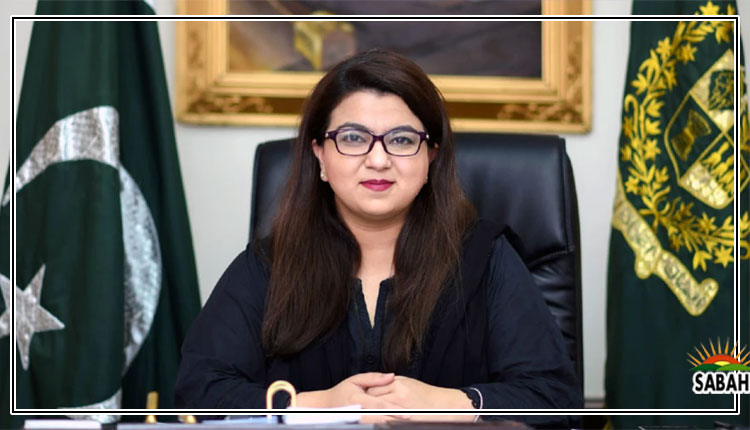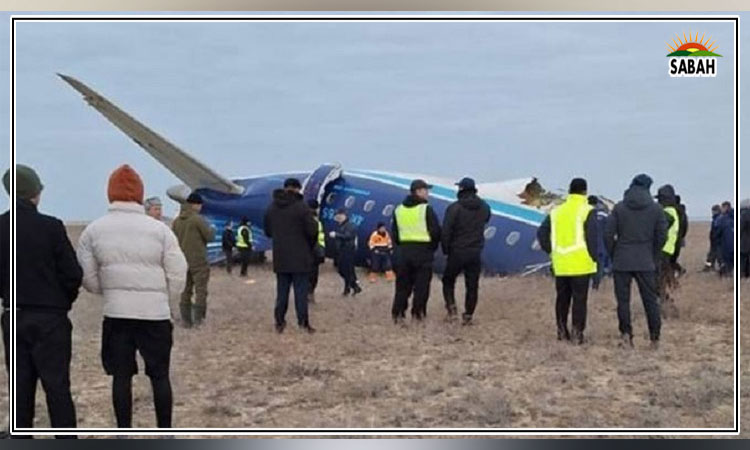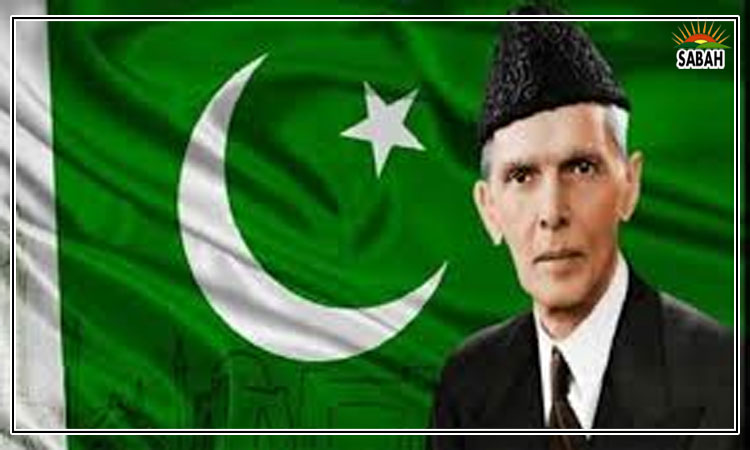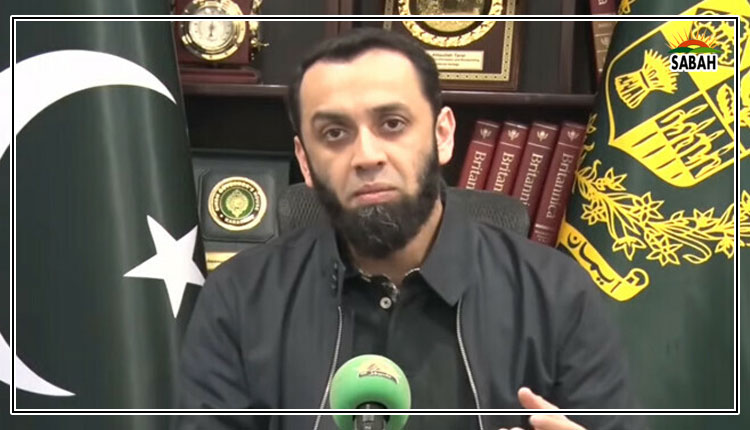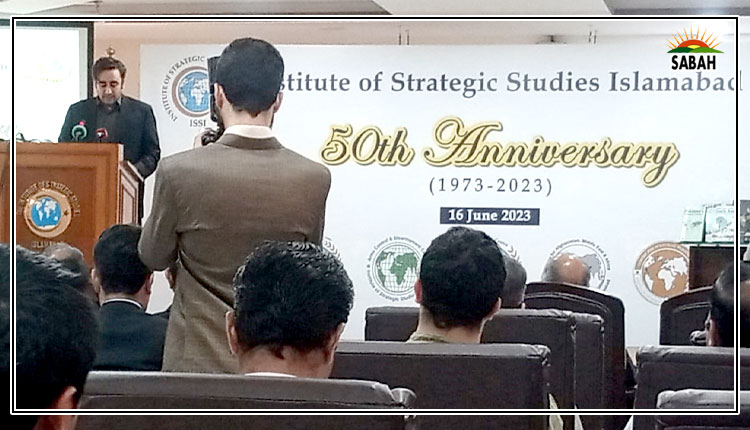FM Bilawal urges the United Nations to play its role in resolving Kashmir dispute
ISLAMABAD, June 16 (SABAH): Foreign Minister Bilawal Bhutto Zardari has urged the world countries to work jointly to meet challenges of climate change, poverty and resolution of conflicts for restoration of peace.
Addressing a ceremony held on the occasion of 50th Foundation Day of Institute of Strategic Studies Islamabad (ISSI) here on Friday, Bilawal Bhutto Zardari stressed the need of dialogue and diplomacy to resolve all outstanding issues and added that Pakistan wanted good relations with other countries including China and India.
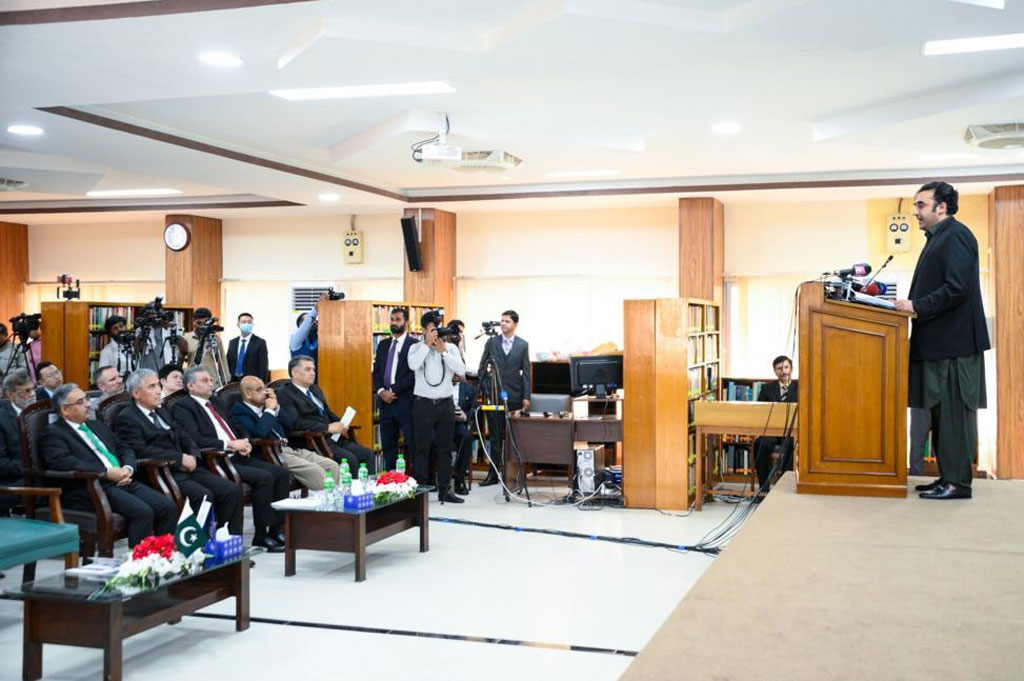
Seminar began with the recitation from the Holy Quran. During the seminar, a short video clip was also played which portrayed the services of ISSI during its history. The event was attended by a large number of former diplomats, senior officials, members of the Islamabad-based Diplomatic Corps, academics, scholars and researchers, and representatives of civil society, think-tanks, and the media.
Bilawal Bhutto said that dialogue is better solution of all challenges and added “We should work jointly for sorting out issues.” He added that ISSI will continue playing its role on foreign policy fronts.
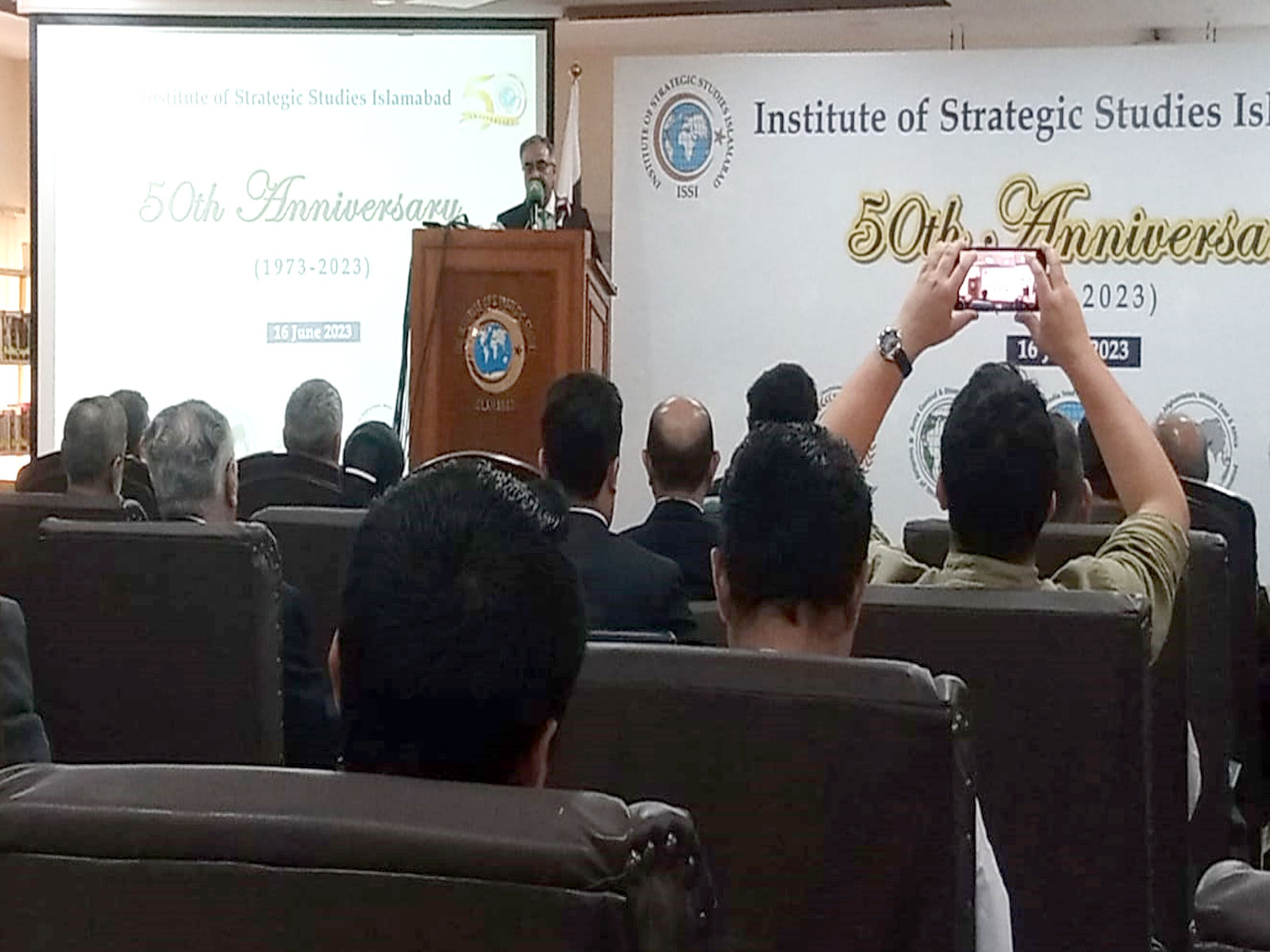
He said Pakistan is strategic partner of China and China-Pakistan Economic Corridor (CPEC) is a flagship program and manifestation of this deep rooted and times tested friendship. The foreign minister urged the United Nations to play its role in resolving Kashmir dispute as per Security Council resolutions and aspirations of the Kashmiri people.
He said the world powers must take actions against India’s unilateral, brutal, despotic and illegal actions in illegally occupied Jammu and Kashmir. Bilawal Bhutto said the United Nations and other world powers must play their role for development of Afghanistan. He also stressed on the interim-Afghan government to respect international laws and engage in negotiations with all stakeholders to restore peace in the country.
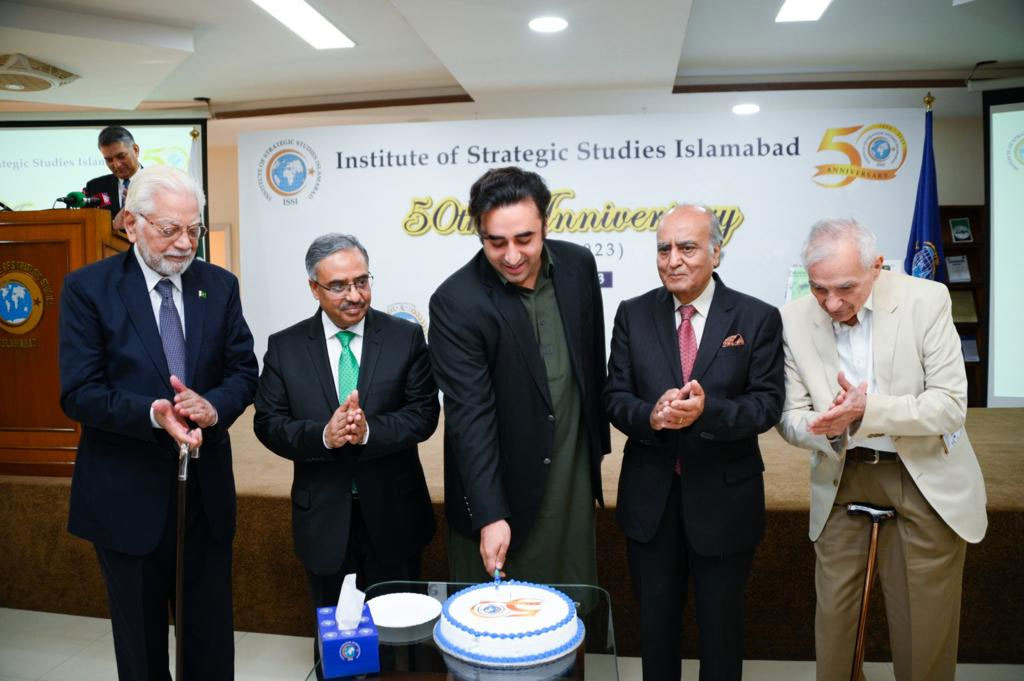
He said Pakistan has good relations with Saudi Arabia, Turkiye and United Arab Emirates. Shedding light on Russia-Ukraine conflict, Bilawal Bhutto Zardari said Pakistan wants peaceful resolution of the issue.
“I am honoured to join you in commemorating the 50th anniversary of the Institute of Strategic Studies Islamabad (ISSI). This milestone is not only a testament to the dedication and commitment of the ISSI, but it also holds a special place in my heart as the foundation of this prestigious institution was laid by my grandfather Shaheed Zulfiqar Ali Bhutto,” Bilawal remarked.
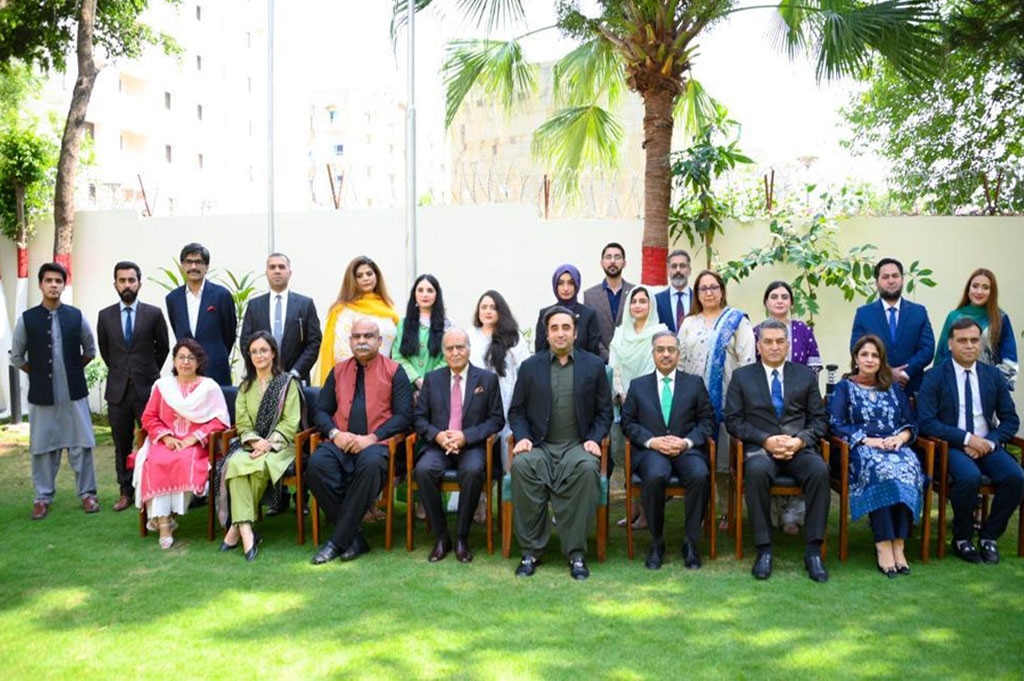
Bilawal Bhutto shared Pakistan’s assessment of the obtaining global environment and gave his perspective on all major aspects of Pakistan’s foreign policy. He said that the world today is beset by the inter-locking food, fuel and financial crises, while the existential threat of climate change looms large. At the same time, the most distinguishing feature of our times is the intensifying great-power contestation – which has in its wake the potential to divide the world, undermine the prospects of international collaboration to tackle global challenges, and even evoke major-power conflict.
The Foreign Minister added that the Foreign Policy of Pakistan must be imaginative, multi-dimensional, and flexible enough to adapt to the rapidly transforming geo-political landscape across the globe. He underscored that Pakistan has clearly voiced its opposition to any bloc politics or relapse into another Cold War. Forging military alliances and assigning the role of ‘net security provider’ to some countries at the expense of others is fraught with grave consequences, he added. He underscored that the key driver of inter-state relations should be cooperation, not confrontation.
In the context of Russia-Ukraine Conflict, the Foreign Minister underlined the importance of adherence to the time-honoured principles of inter-state relations and UN Charter – including respect for sovereignty and territorial integrity. He also emphasized the importance of making a beginning towards addressing mutual concerns and resolving the conflict through dialogue and diplomacy. This was vital for re-establishing sustainable peace in Europe, the continent that had earlier forsaken war.
The Foreign Minister also covered Pakistan’s relations with China, the U.S., Russia, Europe and the Muslim world.
Regarding relations with India, the Foreign Minister stressed that the prevalent mistrust is primarily due to the illegal and unilateral actions taken by India in IIOJK on 5 August 2019. He said Pakistan remains committed to a peaceful resolution of the Jammu and Kashmir dispute in accordance with the UN Security Council resolutions and the wishes of the Kashmiri people. If this dispute is resolved in a just and fair manner, not only durable peace will be established in South Asia but also the peace dividends would contribute to the well-being and prosperity of the 1/5 of humanity residing in the region. He added that his recent visit to India for the SCO Council of Foreign Ministers meeting in Goa was reflective of Pakistan’s commitment to the important multilateral platform of SCO.
On Afghanistan, the Foreign Minister stressed the importance for the world to pursue a pragmatic approach and continue constructive engagement. He also emphasized the need for the Interim Afghan authorities to be responsive to the international community’s expectations regarding inclusivity, respect for human rights, and effective counter-terrorism action.
Director General Institute of Strategic Studies Islamabad (ISSI) Ambassador (retd) Sohail Mahmood said that ISSI was an important think-tank and added they were celebrating its 50th foundation day on Friday [June 16, 2023]. He said the core objective of ISSI is to foster dialogue, understanding and collaboration amongst scholars, policy-makers, and other stakeholders. He said that ISSI undertakes studies, arranges discussions, promotes research and analysis. He also thanked the guests for joining the event.
Sohail Mahmood dilated in detail on the Institute’s rich history, proactive contributions, and impressive achievements over the past 50 years since its establishment in June 1973. The DG ISSI expressed deep gratitude to the previous Chairmen/Directors General and all scholars and researchers that have been part of the ISSI’s 5-decades journey. Several of them were also attended the ceremony.
The DG ISSI emphasized the importance of recognizing think-tanks as a vital component of the policy eco-system. They offer a vital platform to a range of stakeholders – most importantly scholars and policy-makers – to constructively engage, collaborate on ideas, generate research, and impact policy. He added that ISSI would continue its efforts to bridge the gap that has traditionally existed between the academics and the practitioners.
As for ISSI’s future vision, Ambassador Sohail Mahmood outlined that it would focus its endeavours on strengthening its interface with all relevant national institutions; promoting interaction with the private sector, civil society and the youth as important stakeholders in the policy process; expanding beneficial collaboration with counterpart think-tanks in major parts of the world; increasing the spotlight on key regions including ASEAN, Central Asia and Africa; keeping focus on global issues such as climate change and arms control &disarmament; and accentuating the pivot to geo-economics as part of comprehensive national security.
In the realm of global situation, the DG ISSI said that the world is going through another defining moment in history, with great-power contestation being the most prominent feature and a spectre of bloc politics and as new cold war haunting the world. “Prudence demands that zero-sum perspectives are avoided, countries are spared the dilemma of making painful choices, and the main protagonists are convinced of the benefits of economic inter-dependence as well as the virtues of peaceful coexistence and win-win cooperation,” he said.
On the occasion, the ISSI’s 5 Centres presented the Foreign Minister with their new Books/Special Reports, covering themes that are in tandem with the needs of Pakistan.
The CPSC presented its report ‘Towards Connectivity and Engagement: Pathways of Cooperation with Central Asia and Azerbaijan’; ACDC presented its book titled ‘Emerging Threats and Shifting Doctrines: Challenges to Strategic Stability in South Asia’; ISC presented its book titled ‘Fostering Peaceful Coexistence in South Asia through Economic Cooperation and Climate Diplomacy’; CAMEA presented its book titled ‘Pakistan`s Strategic Frontiers’ and CSP presented its reports on ‘Human Security through Development: Pakistan`s Narratives’ and ‘Regional Cooperation on Climate Change in South Asia’.
The Chairman and DG ISSI presented a Special shield to the Foreign Minister on the occasion. The ceremony concluded with the cutting of a cake celebrating the Golden Jubilee and 50th Foundation Day of ISSI.


